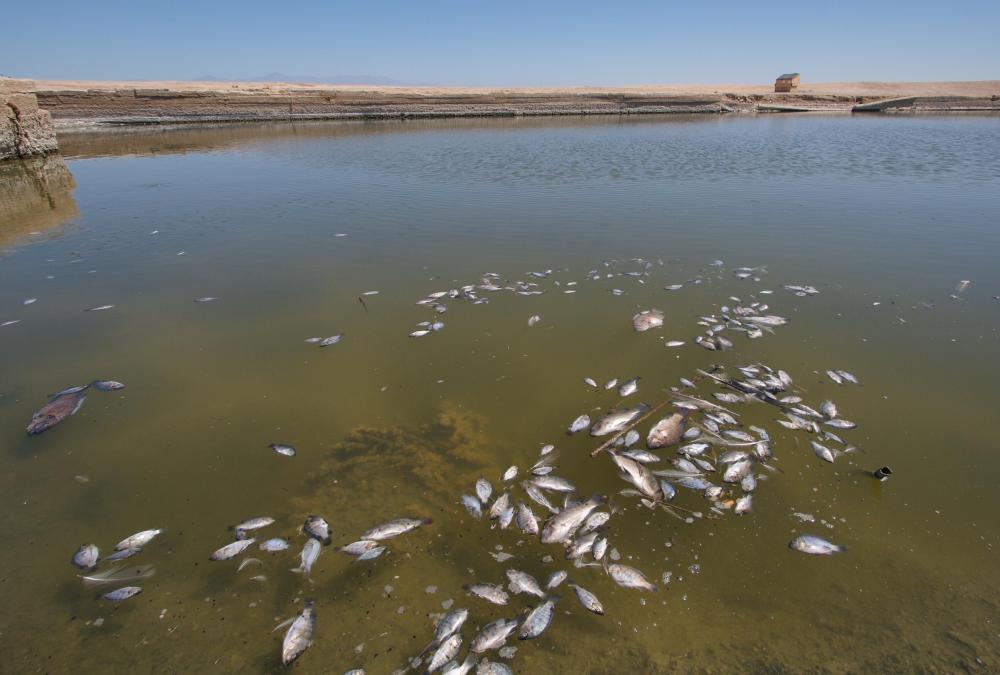At AllThingsNature, we're committed to delivering accurate, trustworthy information. Our expert-authored content is rigorously fact-checked and sourced from credible authorities. Discover how we uphold the highest standards in providing you with reliable knowledge.
What Is Fish Conservation?
Fish conservation is the protection of wild fish populations. Scientists and ecologists who work in fish conservation may work directly with a species of fish, developing policies that protect the future of that species, or they may work to protect and clean up the environment that fish live in. In 2011, fish populations are in decline all over the world, making the conservation of fish species vital.
One component of fish conservation is the responsible management of fisheries. Many species of fish that are caught for food have experienced dramatic population decline in the past few decades. This decline in population can be attributed to a number of different things, including a greater demand for seafood, a change in the temperature of the water, and an increase in pollution. Though the number of fish available has decreased for many fish species, demand for these fish is, in many cases, continuing to rise. Scientists and government agencies must often work together to conserve fish species by imposing strict limits on fishing, both in terms of how many fish can be removed from a given body of water and when those fish can be taken.

Another component of fish conservation is captive breeding. Threatened and endangered fish species can often be bred in captivity and then either released into the wild or grown for human consumption on a farm. Unlike many animal species, many fish readily adapt to release into the natural environment, making it possible to conserve some species by breeding them.

Scientists who work in fish conservation may also focus on the observation of fish species, aquatic ecosystems, and the environment where the fish are found. By gathering data about fish, these scientists can determine which populations may be in jeopardy so that limits on fishing can be put into place. They can also help to determine what types of environmental factors may be influencing the fish population.

Fish are at great risk from environmental pollutants, so a large part of fish conservation involves protecting the environment. Fish need water not just as a habitat but as a source of oxygen and food as well. When the water in a given area has been polluted, fish may die off or become infertile, decreasing the population of fish in that area. Cleaning up environmental contaminants and putting extra protections in place so that water does not become polluted is a large part of fish conservation.
Frequently Asked Questions
What is fish conservation and why is it important?

Fish conservation involves the protection and management of fish species and their habitats to ensure sustainable populations. It's crucial for maintaining biodiversity, supporting ecosystems, and providing food security for billions. According to the FAO, over 30% of the world's fish stocks are overfished, making conservation efforts vital for reversing this trend and preserving aquatic life for future generations.
What are the main threats to fish populations worldwide?
The primary threats to fish populations include overfishing, habitat destruction, pollution, climate change, and the introduction of invasive species. Overfishing is particularly dire, with the World Wildlife Fund reporting that many species are being caught faster than they can reproduce, leading to significant declines in fish stocks and the disruption of marine food webs.
How does overfishing affect ecosystems?
Overfishing disrupts the balance of marine ecosystems by removing key species at unsustainable rates. This can lead to the collapse of fish stocks, alter food chains, and reduce biodiversity. The loss of predatory fish, for example, can result in an overabundance of prey species, which may then deplete their food resources, causing a cascading effect throughout the ecosystem.
What methods are used in fish conservation?
Fish conservation methods include establishing marine protected areas, enforcing fishing quotas, implementing sustainable fishing practices, and restoring habitats. The use of fish hatcheries and breeding programs can also bolster populations. According to the IUCN, protected areas can increase fish biomass by up to 670% within their boundaries compared to adjacent areas.
How can individuals contribute to fish conservation?
Individuals can contribute to fish conservation by choosing sustainable seafood, reducing plastic use to prevent ocean pollution, and supporting conservation organizations. Educating oneself and others about the issues facing aquatic life and advocating for stronger environmental policies are also impactful ways to help. Responsible recreational fishing practices, like catch and release, further aid conservation efforts.
What is the role of governments and international bodies in fish conservation?
Governments and international bodies play a critical role in fish conservation by creating and enforcing regulations, such as fishing quotas and trade restrictions on endangered species. They also facilitate international agreements like the United Nations Convention on the Law of the Sea, which sets guidelines for the management and conservation of marine resources and habitats.
AS FEATURED ON:
AS FEATURED ON:














Discussion Comments
True Heavanet, and we can all do our part by learning about what fish are endangered or caught using unsafe methods, and avoid eating those varieties.
Fish conservation is very important because many species are declining in numbers and even approaching endangerment. We don't think about this when we enjoy a fish dinner, but it is a fact.
Post your comments